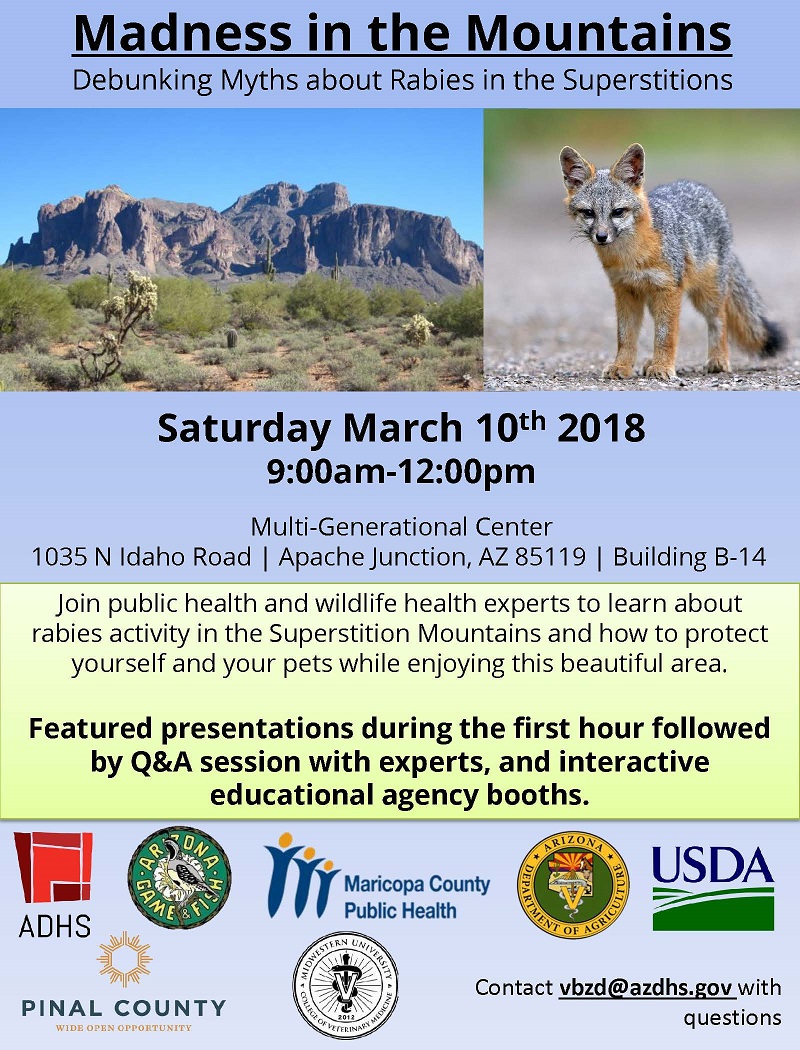 Leptospirosis is a bacterial disease that can affect people and animals. The bacteria can be found in soil and water and can be carried and spread in the urine of infected animals (including rodents, wildlife, pets, and livestock). Dogs can become infected with leptospirosis. Symptoms in dogs include fever, lethargy, lack of appetite, vomiting, diarrhea, and in severe cases may result in liver or kidney failure. Some dogs do not show signs of illness, and even after treatment, dogs with leptospirosis can shed the bacteria in their urine for several months.
Leptospirosis is a bacterial disease that can affect people and animals. The bacteria can be found in soil and water and can be carried and spread in the urine of infected animals (including rodents, wildlife, pets, and livestock). Dogs can become infected with leptospirosis. Symptoms in dogs include fever, lethargy, lack of appetite, vomiting, diarrhea, and in severe cases may result in liver or kidney failure. Some dogs do not show signs of illness, and even after treatment, dogs with leptospirosis can shed the bacteria in their urine for several months.
People can also be exposed to leptospirosis and often develop flu-like symptoms. Severe illness resulting in liver and kidney damage may also occur. Infected dogs can also spread leptospirosis to people. People that work with animals may be at increased risk for leptospirosis. In Arizona, leptospirosis in both dogs and people is rare and sporadic. However, cases in dogs are now on the rise, with several groups of leptospirosis positive dogs having been reported in Arizona in the past year.
There are no confirmed cases of human leptospirosis associated with any of these ill dogs. The Arizona Department of Agriculture – Office of the State Veterinarian, Maricopa County Department of Public Health, Arizona Department of Health Services , and Centers for Disease Control and Prevention are working together to investigate the possible source and provide education to veterinarians and dog owners to prevent illness. Leptospirosis can be prevented in people and pets by following these recommendations:
- Wear protective clothing and shoes to avoid exposure to contaminated water or soil.
- Avoid recreational activities, such as swimming, in water that may be contaminated with animal urine
- Avoid contact with rodents and wildlife to reduce exposure to the bacteria
- Discuss vaccinating your dog against leptospirosis with your veterinarian
If your dog has been diagnosed with leptospirosis, be safe by following these recommendations:
- Wash your hands after handling your pet.
- Wear protective equipment, such as gloves, when cleaning up after your pet to avoid contact with the urine.
- If your dog urinates in your home, quickly clean the area with a household disinfectant, such as 1:10 bleach (one part bleach to nine parts water) solution.
- Encourage your dog to urinate away from standing water or areas where people or other animals go to avoid further spread.
- Avoid taking your pet to a boarding facility, daycare, or dog park until antibiotic treatment is completed and your veterinarian has been able to re-evaluate your dog.
- Visit your doctor and contact public health if you or a family member feels sick. Let them know your dog was recently diagnosed with leptospirosis.
Contact your local health agency, veterinarian, or email [email protected] for more information.












Hello Cara,
I appreciate the information here. Is it due solely to the fact that this can affect people as well as pets that non “licensed” public citizens are able to view it? I have a hard time coping with the fact that pets are considered “property” under our states laws for insurance. If the public were to treat animals the way “veterinarians” do if they cannot heal the ailment(s), then they would all be held accountable in a court of law. What opinions do you have regarding the unaccountability of veterinarians when it comes to malpractice, if that term applies to animal care? I.E. charging a set amount for a visit before the cost of additional services then only caring for one of the two eyes that were in need of care in order to charge the fee again the next week? I have a specific case I’m quite urgently needing to resolve. I appreciate any feedback and I look forward to hearing from you.
Sincerely,
Scott M. Haddox
Hello Scott,
Unfortunately, we at ADHS cannot address these lines of work related to your question. This might be something better referred to the Arizona Veterinary Medical Association: http://azvma.org/
What about cats can cats get it???
Hello Dediree, thank you for contacting the Arizona Department of Health Services about leptospirosis. Very little is known about leptospirosis in cats, but the disease appears to be much less common than in dogs or people and tends to be mild. A report of three cats with leptospirosis showed that all three cats were indoor/outdoor, hunted, and lived in areas where contact with cattle and pig urine was possible. Please visit http://www.cdc.gov/leptospirosis for more information or contact [email protected] with any additional questions.
Question how many cases now?
Hello Tatjana, thanks for your question. Currently, there are about 60 positive dogs with leptospirosis.
Can Leptospirosis pass through other means than through contact with urine? Can it pass through skin contact? In other words, if my dog has an open wound on its body, can the disease spread through this means faster if I accidentally handled the dog and touched its wound? Also, can leptospirosis spread between people?
Hello Cindy, thank you for the inquiry. The bacteria that causes leptospirosis is spread in the urine of infected animals, including rodents, wildlife, dogs, and livestock. People and dogs can be infected through contact with infected urine. People, dogs, and other animals can also become infected when coming in contact with urine-contaminated soil, water, grass, food or bedding from infected animals. The bacteria can survive for weeks to months in wet soil and water. It is not believed that Leptospirosis can be passed through contact with open wounds, although washing hands thoroughly with soap and water is recommended if a wound is accidentally touched. Leptospirosis cannot be spread from person to person.
Good afternoon,
Have there been any recent cases (within the past few weeks)?
Thanks
Hello Deanna. Thank you for contacting the Arizona Department of Health Services. There have still been sporadic cases of leptospirosis reported in dogs. We recommended talking with your veterinarian to determine how to best protect your pet, and contacting your local public health department for guidance about how to protect yourself.